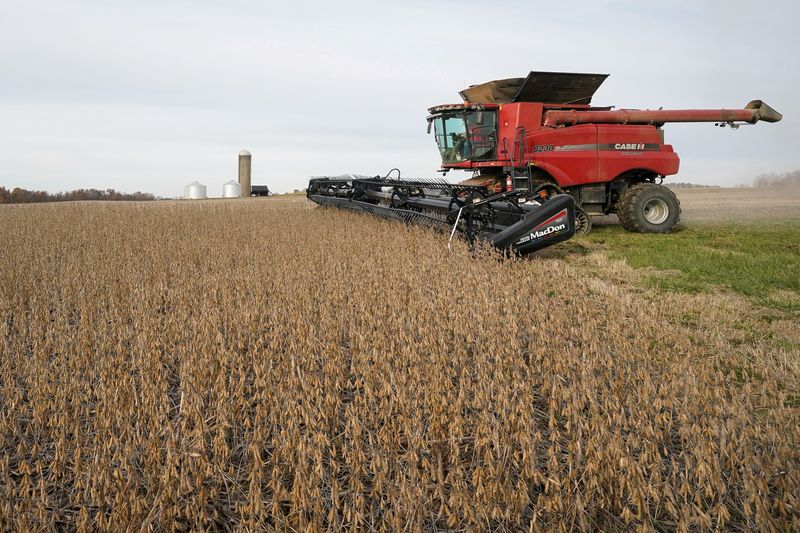By P.J. Huffstutter and Heather Schlitz
(Reuters) - U.S. farmers struggling with slumping incomes and depressed grain prices have been switching to cheaper generic pesticides and fungicides as they plan for spring planting next year, which market analysts said could hit the bottom lines of agrichemical companies like Bayer (OTC:BAYRY).
Signs of these financial impacts are already emerging. Bayer shares fell sharply to a 20-year low on Tuesday, after the chemical company warned that weak global agricultural markets and a slumping U.S. farm economy are likely to pressure profits further.
Agrichemical competitors Syngenta, Corteva (NYSE:CTVA) and the agriculture unit of Germany's BASF could also face challenges in the sector, analysts said.
Nearly one-third of all the pesticides and fungicides that Paul Butler uses on his Illinois soybean and corn farm are generic to help him cut costs in a tight year, he said.
Fellow Illinois grain grower Jeff O'Connor is doing the same. "It's like if you grew up eating Fruity Pebbles and now you go to Dollar General (NYSE:DG) and get Fruity Bites," he said.
Despite the cost savings, farmers say there can be drawbacks to downgrading. Manufacturers of generic chemicals typically do not cover the cost of respraying if the product does not work, said Caleb Hamer, an Iowa corn and soy farmer.
Still, Midwestern distributors and grain elevators say they have seen customers cutting back their spring pesticide and herbicide budgets.
Some farmers are shifting away from branded products, said Matt Carstens, chief executive of farm cooperative Landus and agricultural financing company Conduit. Others are investing in equipment that targets and treats weeds and pests in their fields - allowing them to buy less herbicides and pesticides altogether, he said.
"It comes down to this: What does the farmer really need? Do they need a name brand, with protection insurance and complaint policies backing it? Do they need to pay for all of that?" Carstens said.
OFF-PATENT CHEMISTRY
When it comes to chemistry, a farmer's buying decisions often are rooted in the seed.
Farmers typically base their chemical purchases with trait-specific seeds they want - such as ones that produce a drought-tolerant crop or can withstand herbicide applications that kill weeds without harming the plant.
If there is a generic option to brand-name herbicides, and the seeds that a farmer purchases can tolerate it, then it can makes sense to go with a less expensive product, said Mac Marshall, founder of agriculture advising firm Balcony View Consulting.
The number of generics available to farmers is growing. The patent for glyphosate, the active ingredient in Roundup and the world's most widely used herbicide, expired in 2000, according to Rabobank agricultural analysts Owen Wagner and Sam Taylor.

More than two dozen active ingredient patents have expired in the past five years - spurring a boom in off-patent use, which now accounts for about 80% of the agrichemical market share, they said.
Now, with farmers facing weak margins this spring, they're more likely to look for cost savings among their fertilizer or crop protection chemicals, Taylor said.